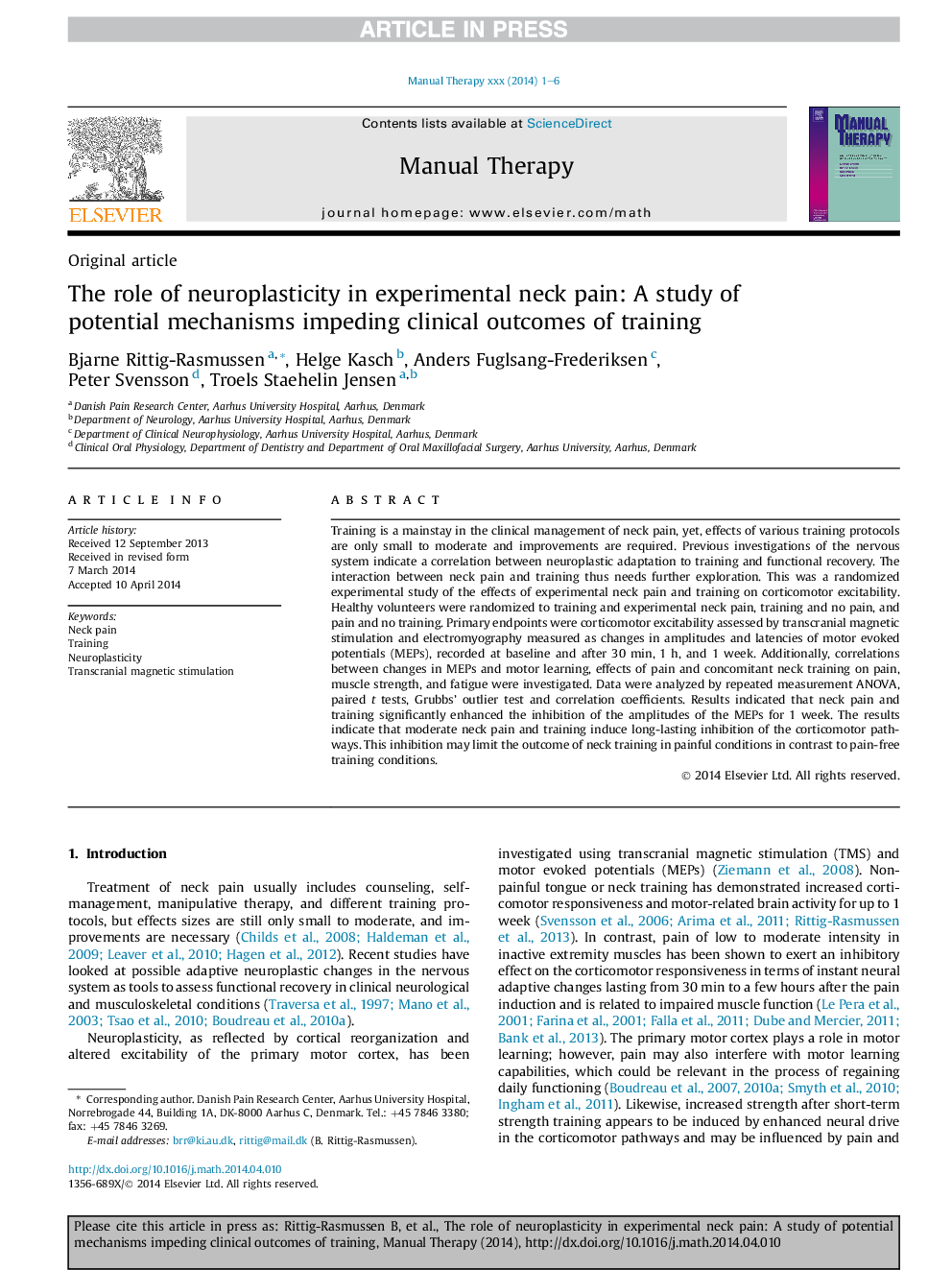| Article ID | Journal | Published Year | Pages | File Type |
|---|---|---|---|---|
| 5864775 | Manual Therapy | 2014 | 6 Pages |
Abstract
Training is a mainstay in the clinical management of neck pain, yet, effects of various training protocols are only small to moderate and improvements are required. Previous investigations of the nervous system indicate a correlation between neuroplastic adaptation to training and functional recovery. The interaction between neck pain and training thus needs further exploration. This was a randomized experimental study of the effects of experimental neck pain and training on corticomotor excitability. Healthy volunteers were randomized to training and experimental neck pain, training and no pain, and pain and no training. Primary endpoints were corticomotor excitability assessed by transcranial magnetic stimulation and electromyography measured as changes in amplitudes and latencies of motor evoked potentials (MEPs), recorded at baseline and after 30Â min, 1Â h, and 1 week. Additionally, correlations between changes in MEPs and motor learning, effects of pain and concomitant neck training on pain, muscle strength, and fatigue were investigated. Data were analyzed by repeated measurement ANOVA, paired t tests, Grubbs' outlier test and correlation coefficients. Results indicated that neck pain and training significantly enhanced the inhibition of the amplitudes of the MEPs for 1 week. The results indicate that moderate neck pain and training induce long-lasting inhibition of the corticomotor pathways. This inhibition may limit the outcome of neck training in painful conditions in contrast to pain-free training conditions.
Related Topics
Health Sciences
Medicine and Dentistry
Complementary and Alternative Medicine
Authors
Bjarne Rittig-Rasmussen, Helge Kasch, Anders Fuglsang-Frederiksen, Peter Svensson, Troels Staehelin Jensen,
